“This enables us to offer not only individual systems, but also solutions from a single source, From taste and recipe development to the design of the final product.” In addition to the TDA, the pilot plant includes a Strip Cut Maker (SCM), enabling it to produce a finished tobacco rod of the type required for HTP. “We have found that coordinated testing with Primary and Secondary experts in one location is a very focused and effective approach. The testing process offers almost instant feedback, which is a real benefit,” says Patrick Fricke, who is in close contact with customer representatives.
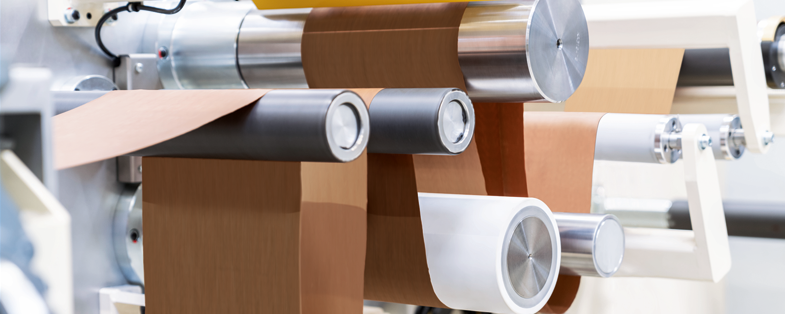
News & Stories - 09/15/2020
Simply test recon products
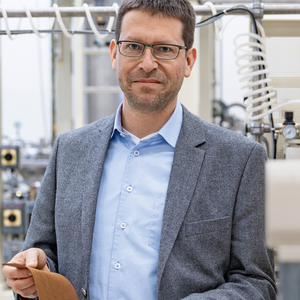
Customers wanting to use recon need to ask themselves several important questions: What qualities should the recon have precisely? What flavor options are available? How can we test everything? And which manufacturing process offers the most advantages? The answers to all these questions can be found in Hamburg where Hauni has built an innovative, high-tech pilot plant. This can be used by customers who are searching for new solutions and already producing recon film themselves from various starting materials – or are planning to do so.
“Test your ideas and recipes with us and design the best end product together with our experts,” says Patrick Fricke, Head of Business Development, inviting customers to try the new pilot plant for themselves. “With our help, you can develop a unique product and manufacture mini-batches surprisingly quickly. This allows you to supply a test market before making any initial investment of your own and with minimal risk,” he adds, summarizing the advantages of the approach.
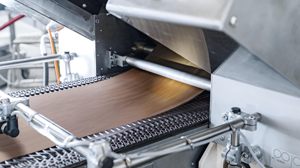
From the recipe to the test market
The new recon plant and associated TDA (Tobacco Dust Amalgamation) process were developed by Garbuio, the Hauni Group’s specialist for the Primary. “We contribute our specific expertise to the development of a be- spoke product – as do the flavor and metrology specialists from our sister companies, Borgwaldt, Borgwaldt Flavor and Sodim,” says Marco Morandin, Head of Sales at Garbuio, highlighting the strong cooperation between colleagues from the various Hauni companies.
Answers to recon questions
Working with recon film raises various questions for companies in the tobacco industry. One of these is whether it is worth purchasing a plant of their own in order to overcome bottlenecks in the supply of recon film. Is it always more expensive to purchase the film than manufacture it in-house? Might it be easier to introduce alternative flavors if you have your own plant? The answers to these questions only become clear when you know the true capabilities of production plants for recon film.
lTogether, we can develop a unique product and manufacture minibatches surprisingly quickly.r
Patrick Fricke, Head of Business Development at Hauni
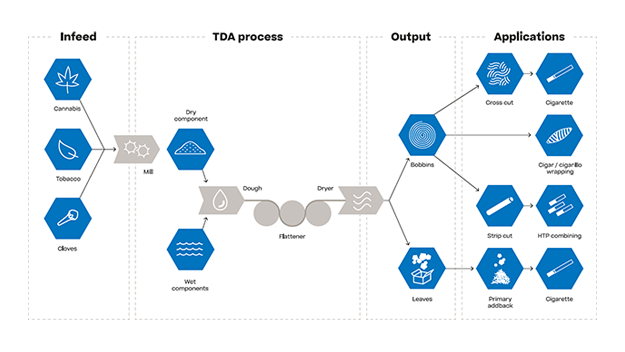
How the TDA line works
The raw material – tobacco, hemp or clove – is first ground to a powder. Moist components are then mixed in to produce a dough, which is rolled out and dried. If this recon film is destined for use as Primary addback, it is then cut to form recon flakes, packed in a box and added later in the Primary process. If it is to be used in the production of HTP or for wrapping cigars, it is wound on a bobbin. Hauni can also use the pilot plant in Bergedorf to produce tobacco sticks based on strip or cross cut for its customers.
Four key advantages
1. More taste and nicotine
Existing solutions work with a recon that has a high glycerin/water content of up to 95 percent for processing. However, the new TDA produces tobacco dough with a moisture content of just 20 to 40 percent. This dough therefore dries much faster and significantly reduces the loss of nicotine and flavor. The TDA process uses fewer binders with the result that the tobacco content increases. It also reduces the unpleasant influence of binders on flavor during combustion.
2. Homogeneous product quality
Since the tobacco dough has a firm consistency – in contrast to conventional systems – it can easily be flattened to a very uniform and controlled thickness using rollers. This guarantees consistency in downstream processes and helps to ensure that important product specifications, such as nicotine content, are always within the specified range.
3. High sustainability and efficiency
Environmental sustainability is another aspect that benefits from the low moisture content of the TDA’s recon film – with shorter drying times, lower energy consumption and the elimination of preheating processes.
4. Scalable production line
Starting out with a small solution is no problem: the compact system requires little space and can be expanded at any time, so manufacturers can react quickly to changes in the market – for example, by using recon films not only for cigarette production but also for HTP or cigars.
Garbuio’s TDA line leads the fields
The TDA compares favourably to other plants of this type, especially in terms of investment, production costs, complexity, energy consumption and footprint.
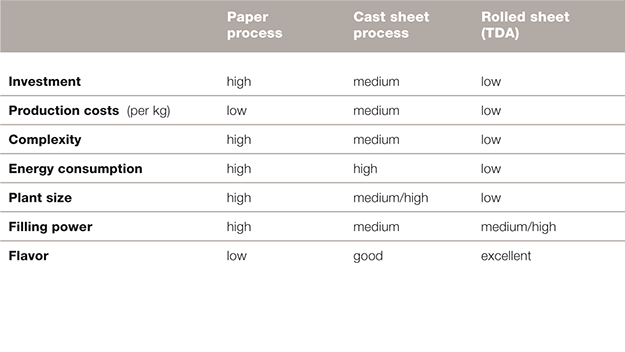
Share this article

